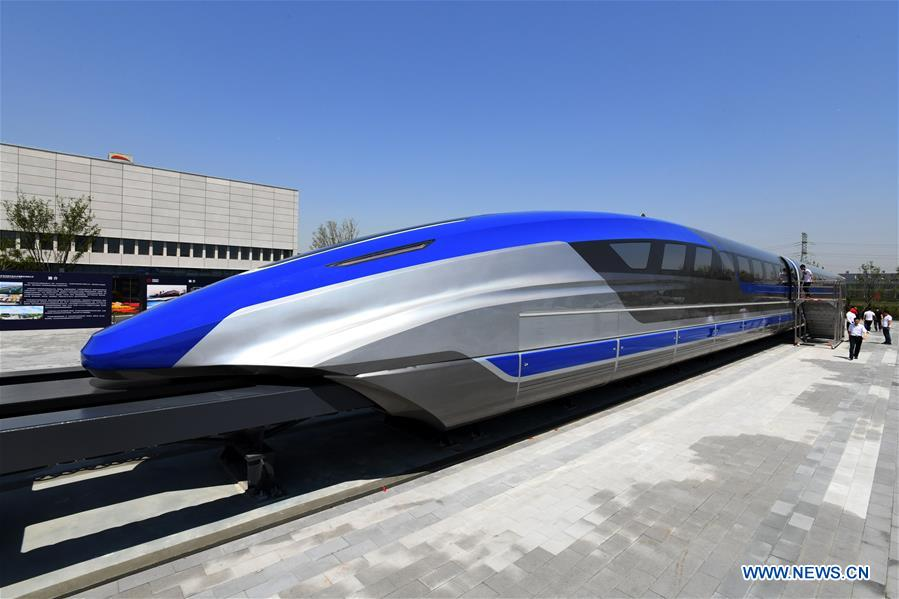China is building a floating train that could be faster than air travel

China's fastest bullet trains currently travel at speeds of over 400 km/h. Image: REUTERS/Aly Song

Get involved with our crowdsourced digital platform to deliver impact at scale
Stay up to date:
China
China has unveiled a prototype of a new magnetic levitation (maglev) train designed to reach speeds of up to 600 km/h.
Maglev technology uses strong electromagnets which lift and propel the train forward on a cushion of air. Without the problem of friction between wheels and rails, maglev trains are able to hit greater speeds than conventional locomotives, and with less noise and vibration.
China already has the world’s fastest commercial maglev service. The Shanghai Maglev, with a top operational speed of 431 km/h, has been carrying passengers on a 30 km stretch between Shanghai’s Pudong airport and the city centre since 2003.
In 2017, Fuxing bullet trains went into service on the 1300 km Beijing-Shanghai line, significantly reducing journey times. These trains travel at around 350 km/h, but the prototype maglev will be so fast it could provide a competitive alternative to air travel, according to its developer.
Ding Sansan, deputy chief engineer at the train’s developer CRRC Qingdao Sifang, a subsidiary of the state-owned China South Locomotive and Rolling Stock Corporation (CRRC), told the media that a trip from Beijing to Shanghai that takes about four and a half hours by plane, including preparation time for the journey, and about five and a half hours by high-speed rail, might last only three and a half hours on the maglev.
However, before it takes any passengers, the new train, built in the eastern Chinese city of Qingdao, is scheduled to undergo a period of extensive testing.
What is AMNC, the World Economic Forum's meeting in China?
Future train travel
China isn’t the only country experimenting with maglev technology. Japan, a pioneer of high-speed rail, broke its own world record, hitting 603 km/h during a test run of an SC Maglev train in 2015.
The country is building a new maglev line between Tokyo and Nagoya, scheduled to open in 2027.
The service will run at a top speed of 500 km/h, covering the 286 km distance in 40 minutes instead of the current journey time of 1 hour 32 minutes. There are also plans for maglev trains to halve the journey time from Tokyo to Osaka by 2045.
Though Japan, South Korea and western European countries including France, Italy, Spain and Germany have extensive high-speed rail networks, China has more than 29,000 km of lines – around two-thirds of the world’s total.
Don't miss any update on this topic
Create a free account and access your personalized content collection with our latest publications and analyses.
License and Republishing
World Economic Forum articles may be republished in accordance with the Creative Commons Attribution-NonCommercial-NoDerivatives 4.0 International Public License, and in accordance with our Terms of Use.
The views expressed in this article are those of the author alone and not the World Economic Forum.
Related topics:
The Agenda Weekly
A weekly update of the most important issues driving the global agenda
You can unsubscribe at any time using the link in our emails. For more details, review our privacy policy.
More on ChinaSee all
Spencer Feingold
March 6, 2024
Andre Vasconcelos, Erasmus zu Ermgassen and Yuan Zhang
February 27, 2024
Liming Chen
January 14, 2024
Winston Ma
January 11, 2024
Nicolas Aguzin
January 3, 2024







